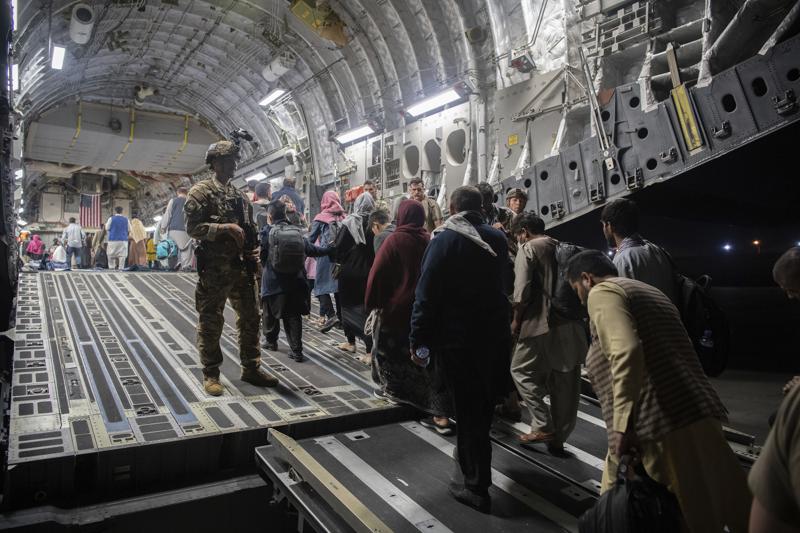A Taliban spokesman says his group will accept no extensions to the deadline and the U.S. must complete its evacuation of people from Afghanistan by the Aug. 31 date the Biden administration set for the withdrawal of all American troops.
Taliban spokesman Zabihullah Mujahid says that life is returning to normal in the country but chaos at the airport remains a problem. Many Afghans are desperate to flee the Taliban takeover of the country.
Advertisement
Mujahid says he is “not aware” of any meeting between the Taliban and the CIA, but he did not deny that such a meeting took place. An official says the director of the U.S. agency met with the Taliban’s top political leader in Kabul on Monday as more reports emerged of abuses in areas held by the fighters, fueling concerns about Afghanistan’s future and the fate of those racing to leave the country before the looming U.S. withdrawal.
Recent days have seen a flurry of efforts to speed a chaotic evacuation of foreigners and vulnerable Afghans from Kabul’s airport, where scenes of desperation have highlighted both the disarray of the American pullout and fears that the Taliban will again impose a brutal rule. Leaders of the Group of Seven nations plan to meet later in the day to discuss possibly extending the airlift past the Aug. 31 deadline for the U.S. pullout despite a Taliban warning that would be a “red line.”
While details of William Burns’ discussion with Mullah Abdul Ghani Baradar on Monday were not released, the meeting represents an extraordinary moment for a CIA that for two decades targeted the Taliban in paramilitary operations. And it gives a sense of the extent of the wrangling happening ahead of the end of America’s two-decade war in the country.
The CIA partnered with Pakistani forces to arrest Baradar in 2010. He spent eight years in a Pakistani prison before the Trump administration persuaded Pakistan to release him in 2018 ahead of peace talks.
The Washington Post first reported Burns’ meeting with Baradar. A U.S. official confirmed the report on the condition of anonymity because they were not authorized to speak publicly.











